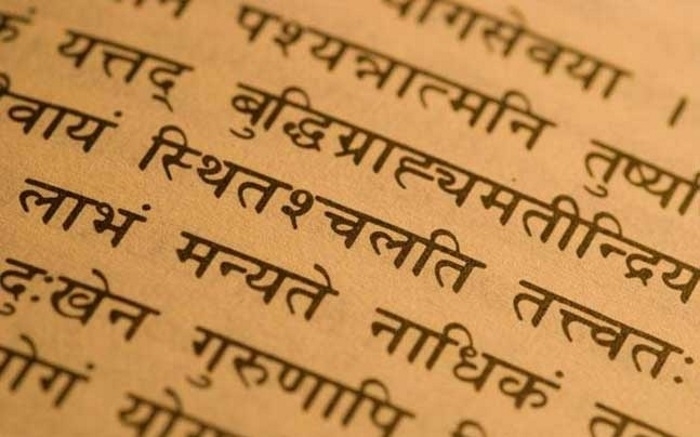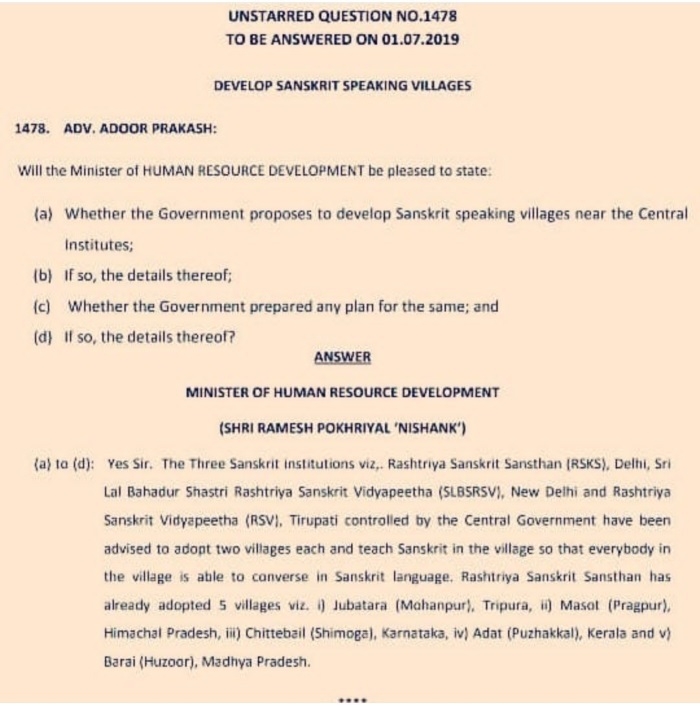Rejuvenating “Dev Bhasha”, Karnataka’s Shivamogga all set to get another ‘Sanskrit Village’!
Total Views |
New Delhi, Jul. 5: In an effort to revive the deva bhasha (the language of the Gods), In the picturesque Thirthahalli, Chittebail has been hand-picked by the center to develop as “Sanskrit Village”.

For this rejuvenation of Sanskrit, the Centre has instructed Rashtriya Sanskrit Sansthan (RSKS), Sri Lal Bahadur Shastri Rashtriya Vidyapeetha (SLBSRSV) and Rashtriya Sanskrit Vidyapeetha (RSV) to adopt two villages each so as to make the people living there conversant in the language.
Before Chittebail, Mattur had the sole distinction of being the first village in the country where Sanskrit was used in day-to-day conversation. Both the villages are located in Karnataka’s Shivamogga district.
The people of Mattur use Sanskrit in their day-to-day conversation, given the fact that Kannada is the official and native language of the state.
Apart from Chittebail, four other villages -Jubtara in Tripura, Masot in Himachal Pradesh, Adat in Kerala and Barai in Madhya Pradesh have been selected under the Centre’s Unnat Bharat Abhiyan.
Answering the question asked by Kerala MP Adoor Prakash, HRD minister Ramesh Pokhriyal Nishank stated, Rashtriya Sanskrit Sansthan, New Delhi, had adopted Chittebail and classes and workshops will be organized for all villagers to help them converse in Sanskrit.

First introduced into the Eighth Schedule of the Constitution of India (1949), Sanskrit has been accorded all the benefits from the Centre, including funding for Sanskrit colleges and universities.
A part of the Indo-European language family, Sanskrit has fallen out of favor and is not considered a mass language anymore. While the language may not be in great demand in India, it has a huge following in Germany with many universities offering Sanskrit and Indology courses.
Meanwhile, in neighboring Nepal, the Chinese government has offered to cover the salaries of teachers who teach Mandarin. After this announcement, many private schools in the Himalayan kingdom made Mandarin mandatory for students. This move comes at a time when Beijing is getting deeply involved in Nepal with its ambitious Belt and Road Initiative (BRI).